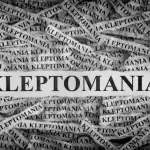Introduction
The Indian States of Baluchistan, Sindh, Western part of the state of Punjab and the North West frontier region were constituted into West Pakistan while the Eastern part of the state of Bengal was named East Pakistan and together these two regions became known as the nation of Pakistan. In 1970s East Pakistan seceded to become Bangladesh.
Language Difference
The language spoken by the Pakistani Muslims is the original language or mother tongue they speak as natives of each of the constituent states of Pakistan. A Pakistani Muslim in the state of Punjab will speak Punjabi; in the state of Sindh will speak Sindhi. Similarly the language spoken by Indian Muslims is the language of the state to which they belong. Thus an Indian Muslim born in Tamil Nadu will speak Tamil while one born in Gujarat will speak Gujarati.
Language Script.
Pakistani Muslims have replaced the original script of their native language into Arabic script. So though they speak the Sindhi or Punjabi or Baloch or Pashtun language when writing they use the Arabic Script. This is due to the deliberate attempt by Pakistan Government to eradicate everything connected to the pre-Islamic period. In the case of the Indian Muslims due to the Indian Government policy of promoting state languages along with the national Hindi language Indian Muslims have retained knowledge of the original script of their respective mother tongue.
Dress
Pakistani Muslims like most North Indian Muslims except Bengal wear the traditional dress of loose shirt and pant which is a common dress in North West India and North India. However Indian Muslims in Bengal, Central and Southern India wear “the lungi “. It is a long rectangular cloth. One edge of this circled and rolled up around the waist while the other edge is allowed to fall to the feet.
Knowledge of the Ancient History of the Sub-continent.
Muslims of Pakistan have a distorted version of the history of not only the region of Pakistan but of the sub-continent as a whole. They learn nothing about the rich past of this land in the last five thousand years simply because it is pre-Islamic and Hindu. Pakistani Muslims learn about the arrival of the Islamic army and the establishment of the first Islamic Kingdome in this region. They do not see this as an invasion and revere all of the invaders as great benefactors and leaders. They do not learn anything about the atrocities committed on the native population, the enslavement of a large number of women and children and the random destructions of Hindu temples. In fact they glorify the medieval period from the time of Ghazni to that of the Mughal. They also learn about the history of Islam beginning with revelation received by the prophet to the wars he fought on neighboring regions and those battles launched by his successors for spreading Islam. They learn nothing about the history of the pre-Islamic period. Archaeological and historical evidences are twisted to suit the agenda to glorify Islam and Pakistan. This is in contrast to Indian Muslims who learn the true history of the sub-continent.
Fanatics.
Pakistani Muslims are very sensitive to any account of any type of insult to Islam. Even a hint of such an event having taken place leads to huge crowd gathering at the venue. In most cases the crowd goes out of control and ends up lynching or burning alive or stoning to death, the alleged culprit. There are instances where such crowd have forcefully removed the alleged culprit from police custody and lynched him or her. Invariably all these culprits have been “Kafirs†or non-Muslims.
Conclusion.
The above cited factors are the most fundamental difference between the two groups. The Indian Muslim has benefitted from the atmosphere of a Hindu dominated land that has provided him or her opportunities to be more creative and contributive to humanity. This is unlike the atmosphere provided by Islam in Pakistan which has made Pakistan and the Pakistani Muslim the cradle of terrorism.








Leave a Reply